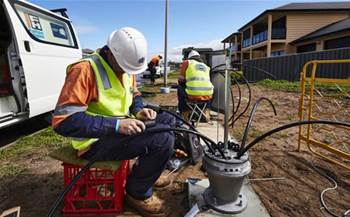NBN Co must convince regulators that its broadband pricing won’t become “inefficiently high” from mid-2032 for its latest special access undertaking (SAU) variation to pass.
Late last week, the ACCC raised substantial concerns [pdf] with the latest redraft of the SAU, which sets price and non-price terms for NBN Co’s operation between now and 2040.
One of the key issues is what happens to NBN pricing from mid-2032.
NBN Co is proposing two regulated periods either side of June 30 2032.
The main differences are:
- The amount of historically incurred costs that can be claimed in each period - $1 billion in the first bit, and up to $11.5 billion post mid-2032;
- Price controls that apply up to mid-2032 don’t necessarily carry over; and
- After mid-2032, NBN Co wants a “stand-alone credit rating with a stable outlook”.
The ACCC is concerned the pursuit of the credit rating could mean large price increases immediately beyond mid-2032, with little regulatory recourse.
The pursuit of the credit rating “does not appear to be subject to any condition that NBN Co has or would continue to invest and operate efficiently,” the ACCC said in a consultation paper.
“In addition, allowing a reasonable opportunity to achieve and maintain such a credit rating from [mid-2032] could potentially require NBN Co to increase its revenues to pay down its debt over a compressed timeframe… and so could bring a material risk of inefficiently high pricing,” it said.
“The arrangements proposed for the post-2032 period… appear to incentivise NBN Co to prioritise recovery of historic losses, including by way of material real price increases that could impede efficient use of the NBN.”
The ACCC added that the SAU, as drafted, “could limit [its] ability to make regulatory determinations that encourage NBN Co to invest and operate more efficiently over time or could risk price shocks in the future.”
Another area of doubt for the ACCC is NBN Co’s service standards, which are included in the SAU for the first time.
The standards aren’t overly ambitious, being a near-replica of those included in a previous version of its wholesale broadband agreement (WBA), which dates back to December 2020.
“A failure by NBN Co to achieve any service standards included in a standard form of access agreement (benchmark or otherwise) would not be a breach of the SAU, although NBN Co may be required to pay a rebate or undertake corrective action,” the ACCC noted.
There is also no specific relationship between higher prices and service quality, which is a bugbear of internet providers.
The ACCC is largely unimpressed by the service commitments, and questions why NBN Co isn’t aiming higher.
“As these were set in December 2020, it could have been expected that NBN Co would be able to offer service levels that support improved quality outcomes for end-users by July 2023,” the ACCC said.
“That is, with the significant further capital expenditure and operational experience NBN Co could have realised a range of efficiencies that consumers could benefit from in the form of a better experience when using their NBN service.
“The proposal does however appear to leave open a potential pathway to higher service quality commitments in future regulatory cycles.”
An NBN Co spokesperson did not address specific issues in a statement, but said the company “will continue to work constructively with the ACCC, internet retailers, consumer advocacy groups and the government towards the successful acceptance of our proposed SAU variation.”


























